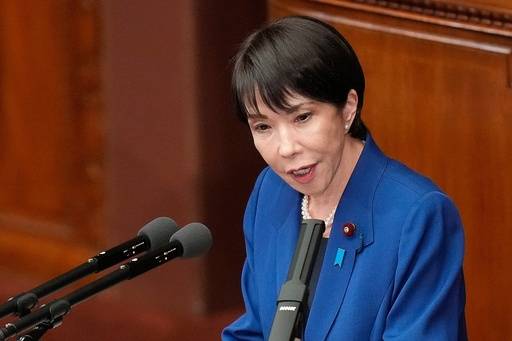China urges citizens to reconsider studying in Japan over security concern

The Chinese government on Sunday urged its citizens to carefully reconsider studying in Japan, citing what it described as an unstable security environment in the country.
The move is seen as part of Beijing’s response to Japanese Prime Minister Sanae Takaichi’s recent remarks in parliament, strongly criticized by China, regarding a Taiwan contingency.
Public security in Japan has deteriorated in recent months, the Chinese government said in a statement, claiming a rise in criminal activities targeting Chinese nationals indicates they are less safe in Japan.
The government also said it calls on Chinese students already in Japan, as well as those planning to study there in the future, to closely monitor the security situation, strengthen their risk assessments and be more aware of personal safety.
Earlier this month, Takaichi said a Taiwan emergency involving the use of military force could pose a “survival-threatening situation” for Japan under its security legislation. The law, if certain conditions are met, allows Japan to exercise the right of collective self-defense.
On Friday, China also urged its citizens to avoid visiting Japan as an apparent retaliatory measure after Takaichi’s remarks.
Japan on Saturday lodged a protest with China over Beijing’s travel advisory, while urging a calm response and stable bilateral ties.
Chief Cabinet Secretary Minoru Kihara urged China to take “appropriate measures” without elaborating and called for both countries to continue dialogue.
“China’s view is not in line with Japan’s understanding. It is precisely because differences remain that multilayered communication between Japan and China is essential,” Kihara, the top government spokesman, told reporters while visiting Niigata, northwest of Tokyo.
Masaaki Kanai, director general of the Foreign Ministry’s Asian and Oceanian Affairs Bureau, also strongly urged Shi Yong, deputy chief of mission of the Chinese Embassy for Beijing to take “appropriate measures.”
China’s Foreign Ministry had called on its nationals to refrain from visiting Japan after the remarks by Takaichi on her country’s potential involvement in a Taiwan contingency developed into a wider diplomatic row.
Earlier Saturday, Takayuki Kobayashi, policy chief of the ruling Liberal Democratic Party, told reporters in Akita Prefecture, “We will continue dialogue and make efforts to build constructive and stable Japan-China relations.” He added that he also wants to confirm the reason behind China’s move.
Describing the bilateral relationship as “extremely important,” Kobayashi said Japan’s stance toward China remains unchanged.
After Takaichi said last week that a military attack on Taiwan by Beijing could pose a “survival-threatening situation” for Japan, Chinese Consul General in Osaka Xue Jian posted on X that a “dirty neck” should be cut “without a moment of hesitation.”
Regarding Xue’s comments, Kobayashi said they were “highly inappropriate,” adding he had requested the government to “respond firmly.”
China, which claims Taiwan as part of its territory, has demanded that Takaichi retract the remarks made in parliament, raising concern that Beijing could escalate retaliatory measures depending on how the Japanese government responds.
The latest decision is believed to be aimed at hurting Japan’s tourism industry. As China accounts for the largest share of foreign visitors to Japan, the travel advisory could dampen the nation’s booming inbound demand, analysts warn.
China’s Foreign Ministry claimed that public safety in Japan has deteriorated this year, alleging a rise in crimes targeting its nationals. It urged Chinese citizens in Japan to remain alert and take precautions against crime.
Beijing also appears eager to convey domestically and internationally that Japan’s approach to China has fueled bilateral tensions, framing the issue as one caused by Tokyo.
Communist-led China and democratic Taiwan have been governed separately since they split in 1949 following a civil war. Beijing regards the self-ruled island as a renegade province to be reunified with the mainland, by force if necessary.
Under its security legislation, Japan can exercise the right of collective self-defense if a situation is deemed “survival-threatening,” even under its war-renouncing Constitution.
Takaichi’s comments were interpreted as indicating that her government could authorize the Self-Defense Forces to take action in support of the United States if China were to impose a maritime blockade on Taiwan or engage in other forms of coercion.

















